By Leif Laufeyjarsen
In an age of bite-sized disposable bits of information, and fleeting content, Benebell Wen’s work is a welcome anomaly best approached with a quiet space and a cup of tea. Her idea of “basic” is anything but, and I’ve learned to only dive into her writing when I’m ready to fully absorb deeply layered, carefully constructed thought.
Despite her impressive work in both Tarot and I Ching, she is profoundly humble. Whether on the page or in person, she is grounded, unassuming, and kind. Although she can hold a firm boundary when the need arises, at her core she is an introvert who wants to positively impact the world we all live in.
Leif Laufeyjarsen: You’ve spoken about the challenges of living in a country where you are perceived as foreign because of how you look, and of being a woman in a male-dominated field (law, not tarot). Do you think navigating that liminal space has shaped any particular strengths or perspectives?
Benebell Wen: One strength that develops is never settling for “just as good” and knowing you have to strive for “twice as good” just to be viewed as equal. It’s funny, because the neurodivergent magically-inclined experience is the same—you need to be “twice as normal presenting” to be viewed as normal. And I think there will always be an internal struggle around assimilation and integration, and this applies to anyone who is marginalized in any way, including those practicing forms of alternative spirituality.
Also, the marginalized experience can lead you to either cultivate more grace for those who don’t see things the way you see them, or it can lead to anger and resentment, and occultists—those who navigate liminal spaces—deal with that same challenge, and same choice in attitude.
Leif Laufeyjarsen: All three of your books are epic in scope—the shortest still clocks in at over 600 pages. Is there anything in your background that drives you to be so thorough?
Benebell Wen: Maybe it’s not so much being thorough as it is a defect in my writing skills–I tend to be too wordy. You get me started on a topic I’m passionate about, and I can just talk, and talk, write and write, and I only realize I may have a word count problem when I go to save the document, and it takes longer to load because the file size has gotten so big.
Leif Laufeyjarsen: In your book Holistic Tarot, you emphasize that there’s no single “true” method of reading—only what works for each reader. How did you come to this view, and has it changed over time?
Benebell Wen: I came to that view from years of studying different methods, and practicing tarot interpretation through different lenses of tradition, from being immersed in the tarot community and seeing how different readers use different methods with different cards differently, and all still found the clarity and self-actualization they sought.
In tarot, the right method is the one that gets you to self-empowerment. Like philosophy, there’s no single “true” school of thought, only the one that helps you to best explore life’s big questions and better understand yourself and the world around you.
Leif Laufeyjarsen: One of your most impactful ideas, for me, is that tarot should empower. Do you see that same principle applying to your other practices, like I Ching, astrology, or numerology?
Benebell Wen: Absolutely. No matter the system, whether it’s tarot, the I Ching, or astrology, the goal should be to empower. I approach these systems as tools for helping us to know thyself, to help us assess the pros and cons, risks and potential gains of a decision we’re contemplating, and most importantly, to enable us to take control of our lives.
I’m not opposed to predicting the future or seeing far back into some mystically shrouded purported past, so long as the output directs us toward self-actualization and making the most out of this life we’ve been given.
Thus, when I talk about not using the tarot for mere fortune-telling, I’m saying these systems have so much more to offer us than just predicting outcomes. They’re designed to help you think more clearly and see the bigger picture, so you can take empowered action. Also, it’s like asking, “Do elephants have tusks?” when your objective was to understand the whole elephant, when you could have asked, “Show me the elephant and tell me everything I need to know about the elephant” so that you can then make your own assessments of said elephant.
These aren’t systems designed for predictions only, although they certainly do seem to deliver that quite effectively. They’re about helping you to see patterns and from spotting the patterns, understand deeper truths. If I’m being candid, anytime I see someone approaching tarot or I Ching as a fortune-telling device, it’s like watching someone drive a Ferrari at 10 mph in a parking lot and exclaiming, “Look what this Ferrari can do!”
Leif Laufeyjarsen: You have also mentioned that tarot should be used responsibly, especially when someone might be vulnerable. What are your thoughts on casual readers who read only for themselves or friends? Would you give any words of encouragement to a beginner or casual reader? Any warnings?
Benebell Wen: Words hold so much power. Phrasing is determinative. Cases are won or lost, lives changed, and fates decided based on how something is said. In contract drafting, two ways of saying the same thing (you think) can lead to the difference of millions of dollars in cost. Me, personally, I think it is only responsible to approach even casual tarot readings in a mindful way, especially when someone is vulnerable and sincerely looking for guidance. How many times has someone’s casual, thoughtless words gotten seared into your long-term memory and decades later you still remember those words, but when asked, that person can’t even remember they spoke to you?
Every one of us seasoned tarot readers were once casual readers reading for ourselves and friends. That’s where you begin. Not only is that okay, that’s just how it is. To navigate the beginner’s journey with grace, though, I think we need to have enough humility to say to a querent, “I don’t know” or “I’m not sure” as you work through interpreting a card.
As a tarot reader, you become by virtue of your role a key touchpoint in someone’s life, like a coach, counselor, advisor, a best friend, an auntie or uncle. We all go through difficult times. When you are at your lowest, feeling your worst and most defeated, the phrasing of what someone says to you can make the difference between you unearthing the inner strength to dig yourself out of your hole or staying defeated. The fortune-teller can see in the cards, “bad times are coming.” The type of tarot reader that makes a difference in this world and changes lives will say, “A storm is brewing, and this is how you prepare for it so you mitigate damage, and perhaps even come out on top. Let me give you the instructions on how to build yourself a shelter.”
Ultimately, though, I say you don’t need psychic ability or academic training to be a good friend. So, to the casual tarot reader, as you approach reading cards for someone, just remember to be a good friend.
Leif Laufeyjarsen: You often say you’re not a teacher—but if we teach through our actions, what do you think others might be learning from yours?
Benebell Wen: We learn from every encounter, every type of person, and any individual you have an exchange with has something to teach you. That doesn’t make them a teacher, at least not in the highly regarded and qualified sense the role of a teacher deserves. Teachers owe a duty to their students, which is why students owe reverence to their teachers. That’s not the relationship anyone should be having with me. The karmic responsibility of a spiritual teacher is even weightier, and sacred. That’s just not me, over here cussing like a sailor, enjoying fine-dining, food, and wine, and gossiping with friends over sushi. I hope I’m more like a friend or sister, just one who happens to have a know-it-all attitude (as most sisters do).
Nonetheless what do I think others might be learning through my actions? That’s a great question. As someone who is not a teacher, I haven’t really thought about that. I’m not thinking about what people can learn from my actions; I’m thinking about whether my actions are aligned with my true north, am I being ethical and moral, am I being kind and compassionate, am I helping or am I hurting, am I performing or is this really true to me? Basically, I’m too self-centered to be a teacher.
Benebell Wen is the author of three books: Holistic Tarot, The Tao of Craft, and I Ching, The Oracle, all available through Crazy Wisdom. She has also created a tarot deck, which is sold out at the time of writing. You can learn more about her and explore her many resources—many of which are free—online at benebellwen.com.

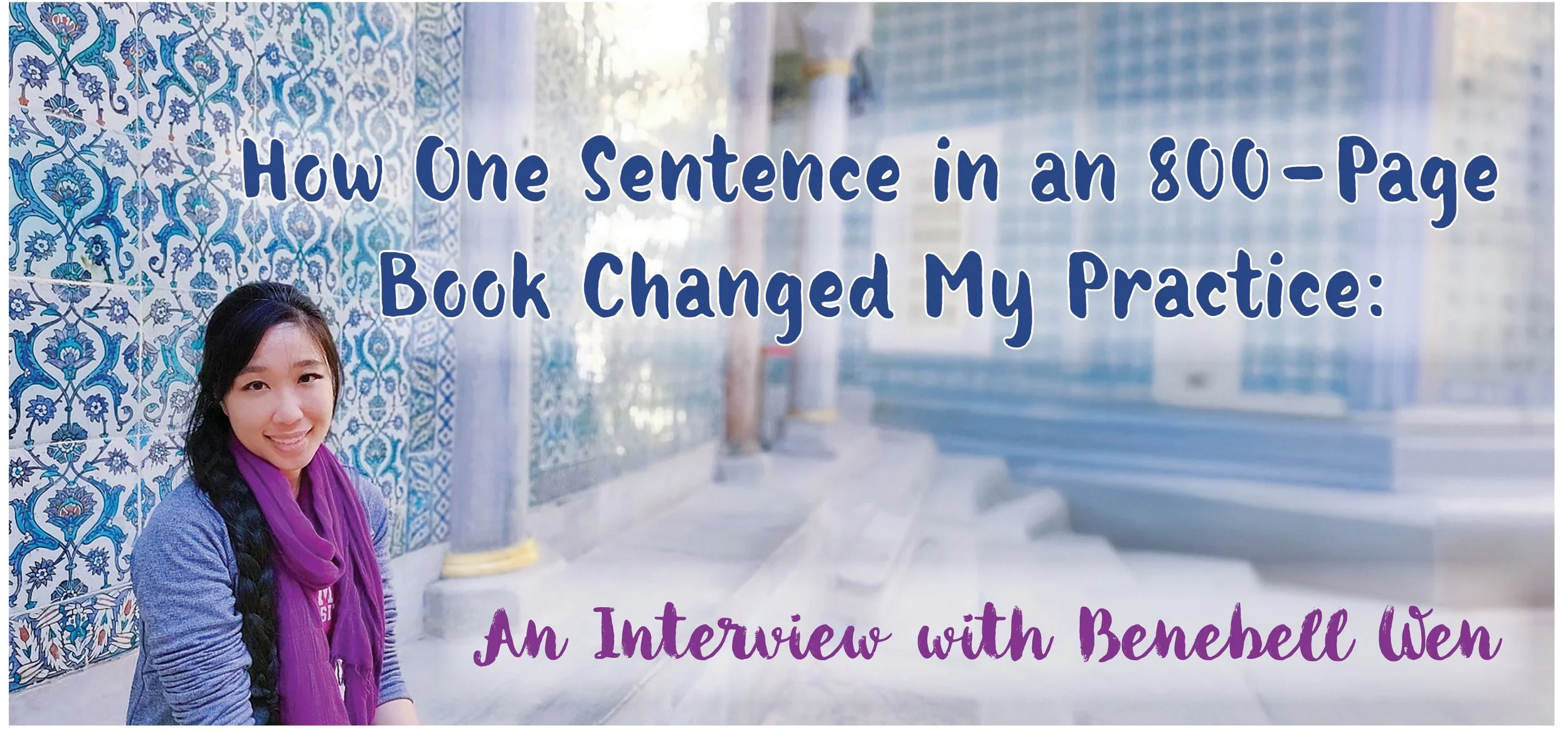

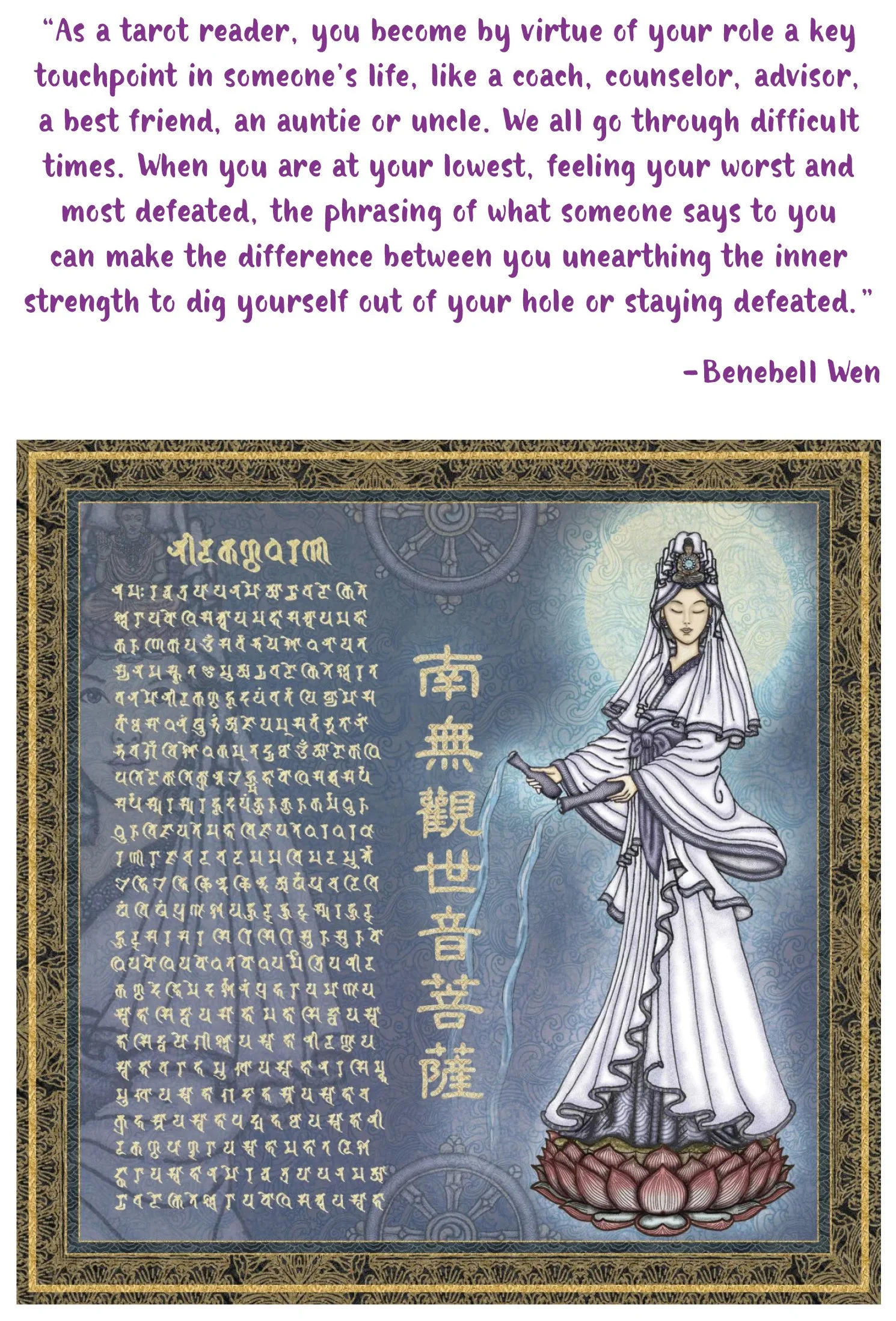


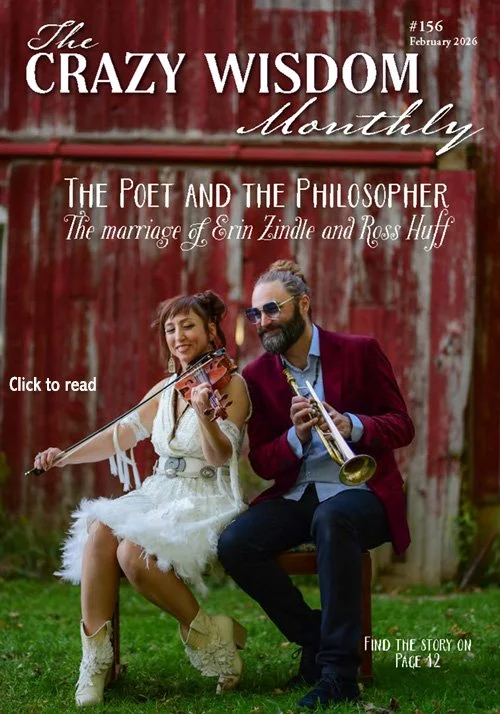



















































































































































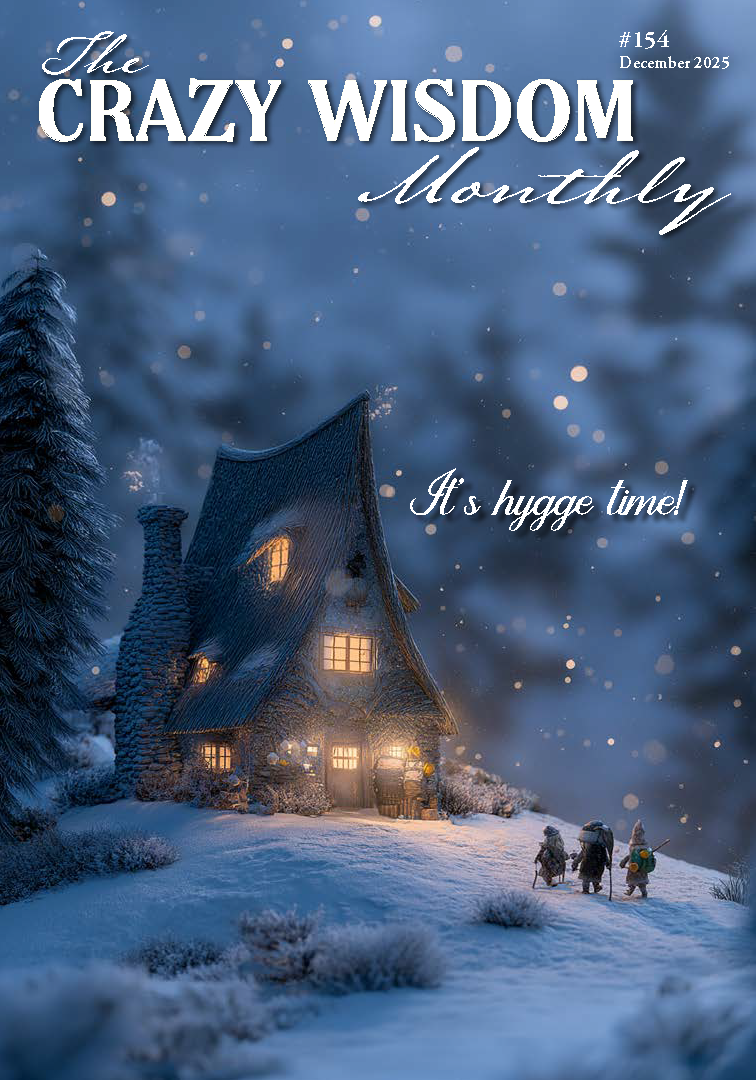
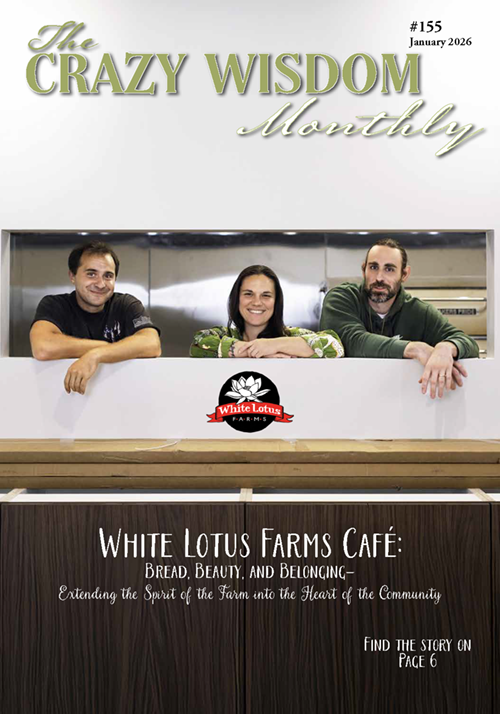









































In an age of bite-sized disposable bits of information, and fleeting content, Benebell Wen’s work is a welcome anomaly best approached with a quiet space and a cup of tea. Her idea of “basic” is anything but, and I’ve learned to only dive into her writing when I’m ready to fully absorb deeply layered, carefully constructed thought.